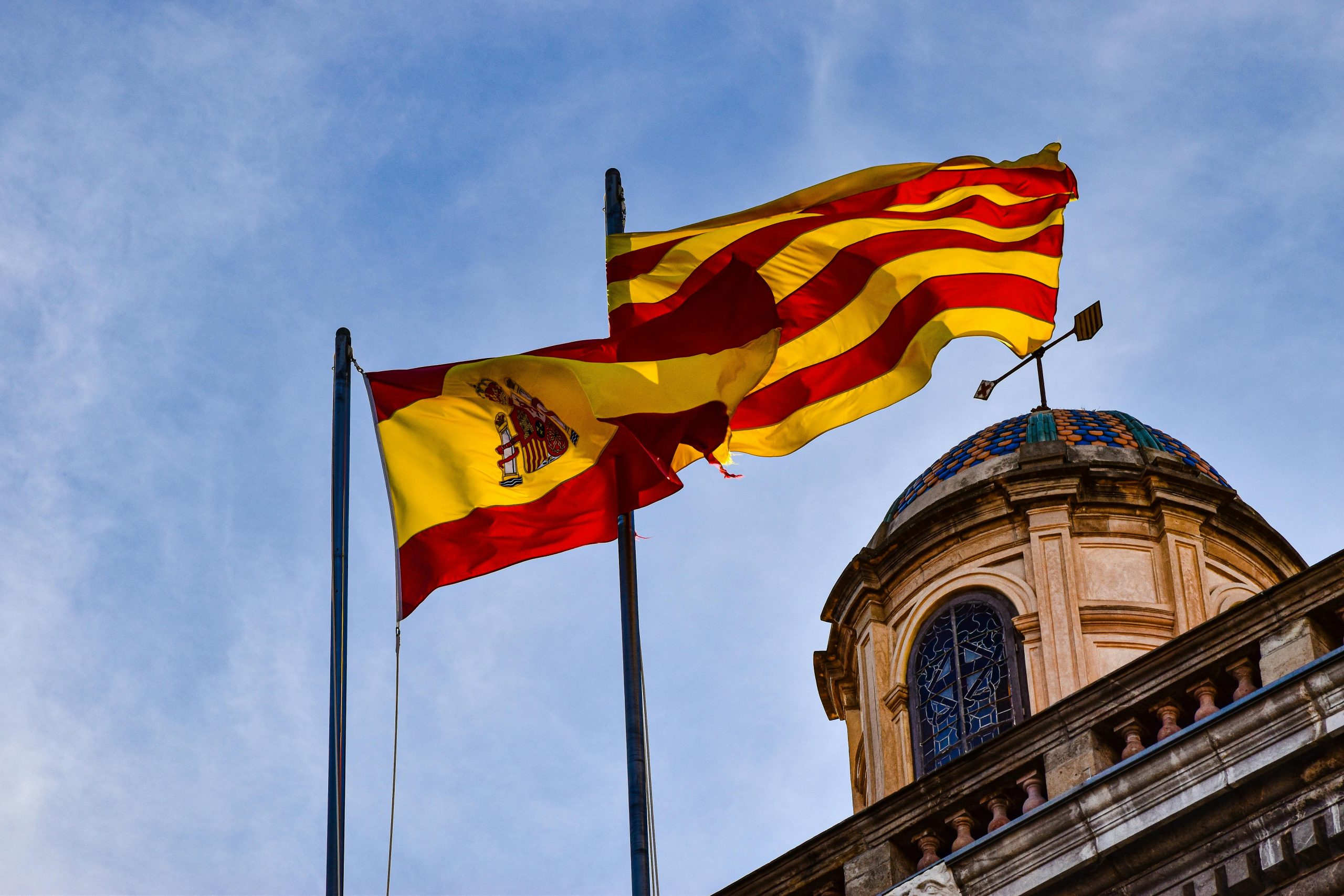Taxes in Italy for expats: Which should I pay?
Immerse yourself in Roman culture and explore taxes in Italy for expats, helping foreigners understand the country’s tax system.
Italy is the birthplace of the Renaissance and Roman civilisation, a country located in Southern Europe, filled with art, so much so that walking through its streets feels like being in an open-air museum. If you love culture, you’ll enjoy living in this boot-shaped country, but do you know which taxes Italy imposes on foreigners? It’s important to know your tax obligations before deciding on this destination.
At Holafly, we will explain in detail the taxes in this country depending on whether you are an individual or a company. You can also benefit from some reductions in rates to ease the tax burden a little. Discover everything you need to know about taxation in Italy for foreigners.
Types of foreigners in Italy
Italy is a country chosen by many types of foreigners to live, work, or study. It is a place with many hidden gems and has excellent public transport that easily connects the most touristy regions. Among these foreigners, we must distinguish between individuals and companies or properties. Both groups must declare taxes in Italy as foreigners and residents in the country.
People
This group includes individuals who do not belong to any business association, such as employees, digital nomads, students, or retirees, among others. There are five categories of foreigners who come to reside in Italy.
- Expatriate workers: These are employees of multinational companies from other countries who settle in Italy, often to work in tourism, fashion, or gastronomy.
- International students: Studying in a country with such a rich culture is a very stimulating experience for any student. The most sought-after universities by foreign students are the Polytechnic University of Milan and Sapienza University of Rome.
- Retirees: Most retirees choose to spend their last years in areas such as Tuscany or Sicily. These regions in Italy stand out for their good climate, cuisine, tranquility, and lower living costs compared to large cities.
- Digital nomads: These remote workers choose Italy for its digital nomad visa. Additionally, Italy is well-connected, being near major European countries and with affordable flights.
- Refugees and asylum seekers: The Italian government welcomes foreigners who need to flee conflict zones in their country or escape humanitarian crises, as seen recently with Ukraine.
Companies or properties
In addition to individuals, the next group we will analyse is foreign companies or properties. This includes multinational corporations, startups, among others. Find out if you belong to any of them:
- Multinational companies: Many multinationals open new offices and branches in major cities like Milan and Rome. The most in-demand sector is fashion, where you’ll find stores with the most renowned brands worldwide.
- Technology and creative startups: Italy is looking for new foreign talent focused on technology and sustainability. For this reason, the Italian Startup Visa programme has been created to assist these companies in settling in the country.
- Real estate investments: As one of the most visited European destinations, some foreigners decide to invest in properties. The most sought-after areas for second residences or tourist rentals are the Italian Riviera, Tuscany, or Lake Como.
- Agricultural businesses: There are also foreign entrepreneurs interested in the agricultural sector. Many invest in vineyards, as Italy has a rich wine-making and gastronomic tradition. Regions with the highest number of foreign investors in this sector include Lombardy, Tuscany, Sicily, or Veneto.

Taxes for foreign individuals in Italy
If you are an individual, there are various taxes in Italy for foreigners who establish their temporary or permanent residence in the country. The rates vary depending on whether you are a tax resident, your income, the properties you have, and other transactions. The main taxes are:
- Income tax (IRPEF): Non-resident foreigners only need to pay taxes on income generated in the country. Tax residents must declare all their income, whether from Italy or abroad. The rates vary from 23% (up to €28,000 ($31,000)), 35% (€28,001.00 – €50,000.00 ($30,500.00 – $54,400.00)), and 43% (over €50,000 ($56,000)).
- Property tax (IMU): If you own a second residence in Italy, as a foreigner, you must pay a rate between 0.4% and 1.06%, depending on the cadastral value of the property and its location.
- Inheritance and donation tax: There is a tax on inheritances and donations of properties or assets, with rates ranging from 4% to 8%, depending on the relationship between the donor and the beneficiary.
Tax benefits for foreigners in Italy
Italy is keen to attract foreigners who want to invest in the country or create jobs for its citizens. That’s why it offers very attractive tax incentives that significantly reduce the rates we’ve discussed earlier. Let’s detail some of them so you can see if you qualify for any of these benefits:
- Scheme for new residents: If you are a foreigner and a new resident, the country offers you a special scheme that allows you to pay a fixed rate of €200,000 ($211,700) annually on income generated outside the country. This benefit can last for up to 15 years, and family members can also benefit, paying €25,000 ($26,300) each.
- Tax deductions for job relocation: This is aimed at highly skilled professionals. They can benefit from a deduction of up to 70% for five years. In some southern regions, this percentage increases to 90%.
- Exemptions on foreign assets: Some new foreign residents are offered exemptions on their assets or investments abroad.
- Incentives for retirees: For ten years, Italy offers retirees a tax rate of 7% on their pension if they decide to live in small towns in the southern part of the country.
Important: If you are a frequent traveler and want to stay connected without worrying about expensive roaming or looking for a new SIM at every destination, Holafly’s subscription plans are for you. With a single eSIM, enjoy internet in more than 170 countries for a fixed price and no surprises on your bill. Travel without limits and connect easily and securely! 🚀🌍

Taxes for foreign properties or businesses in Italy
We’ve already discussed the taxes in Italy for foreign individuals, but if you have a business or property in the Italian peninsula, you’re also required to pay specific rates. Here are the most important ones:
- Property tax (IMU): The property you acquire for your business in Italy is subject to this tax. The rate depends on the cadastral value, location, and usage of the property, with rates ranging from 0.4% to 1.06%. For example, a warehouse in Rome valued at €500,000 ($526,125) will generate an IMU of €5,300 ($5,576) annually.
- Value Added Tax (VAT): VAT is mandatory for all businesses that sell goods or offer services. The standard rate is 22%, with some sectors having reduced rates of 10% or 4%, such as food or pharmaceuticals.
- Corporate Tax (IRES): If your business operates permanently in Italy, you’ll have to pay taxes on its local profits. The rate is 24%, with possible deductions for operating expenses or depreciation, and 20% for businesses that reinvest profits.
- Regional Tax on Productive Activities (IRAP): Depending on the location of your business, you’ll face regional taxes. The rates vary from 3.9% to 4.9%, depending on the region.
Tax benefits for foreign businesses in Italy
To encourage foreign businesses to open in Italy, the government created a series of tax benefits to incentivise these companies. In this way, businesses reduce their tax burden while Italy benefits from strong investments in its economy, job creation, and research in technological projects.
- R&D Deductions: Foreign companies investing in research and development can benefit from tax credits of up to 50% of eligible costs.
- Reduced Tax Regime for Startups: All innovative foreign startups can receive a tax exemption for the first five years, including significant reductions in IRAP.
- Special Economic Zones (SEZ): These special zones, located in southern Italy, offer tax exemptions and reductions in IRAP.
- Relocation Benefits: For businesses relocating from one country to another, the Italian government offers a range of incentives. These include exemptions on taxes for profits generated outside the country for a limited period.

Taxes for foreign investments in the Italian stock exchange
So far, we’ve covered the taxes in Italy for foreigners, both for individuals and businesses. There’s another group that also faces fiscal obligations on their earnings, which is foreign investors in the Italian stock market. If your intention is to invest in the Italian securities market, here are the relevant taxes:
| Tax | Features | Fees |
|---|---|---|
| Capital Gains Tax | Earnings from the sale of stocks or bonds. | Rate of 26%. For example, on a gain of €10,000 ($10,522), you’ll need to pay €2,600 in taxes ($2,630). |
| Dividend Tax | Dividends generated from Italian stocks. | Rate of 26%. You can reduce the rate through the tax treaty exemption. |
| Financial Transaction Tax (FTT) | Purchase of shares from companies based in Italy. | Flat rate of 0.1% for a market capitalization of over €500 million ($526 million). |
Frequently asked questions about taxes for foreigners in Italy
Yes, Italy has signed this type of treaty with over 100 countries. The aim is to allow foreigners to benefit from the exemption from paying tax on the same income in both Italy and their country of origin. The benefits and details of the treaty may vary by country.
All foreigners must pay taxes in Italy, including when purchasing property. Some of these taxes are: Registration tax, VAT (for new properties), and property tax (IMU). Rates vary depending on whether the property is a primary or secondary residence.
Foreign companies only need to pay tax on the profits generated within the country, as long as their headquarters are not located in Italy. Some of these taxes are corporate tax (IRES) and regional tax (IRAP).
If you have a rental property in Italy and you are a foreigner, you must pay income tax. You can benefit from the “cedolare secca”, a simplified tax regime with a fixed rate of 21% on gross rental income.
Yes, the government highly values investment in projects that help improve the country, such as R&D or innovative startups. For this reason, it offers significant deductions for such businesses in the early years of activity.
If a foreigner decides not to comply with the Italian tax system, the consequences can be severe. Depending on the amount, the government can impose significant financial penalties that will increase until the situation is regularised.





 Language
Language 


















 No results found
No results found







